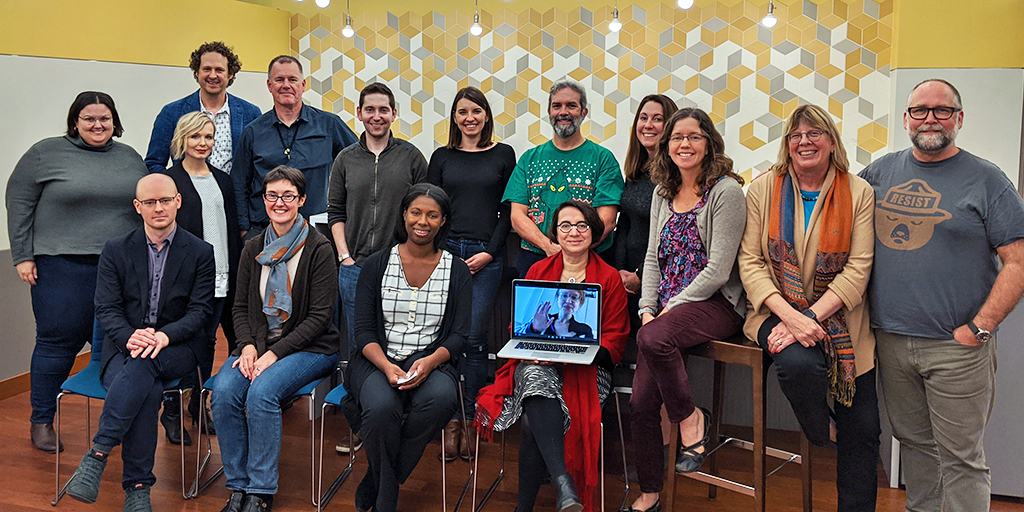Equipping Students to Make a Difference: Message from Bass Connections Leaders
August 26, 2020

Amid this moment of tremendous upheaval, we’ve been reflecting on how exposure to collaborative, problem-centered research allows Duke students to challenge themselves and opens avenues for them to make a difference. Now more than ever, we see the strengths of the Bass Connections model in equipping students to grapple with ambiguity, work with others across boundaries, contextualize issues and take risks to pursue bold ideas.

Our 2019-2020 assessment of undergraduate students, conducted before and after students participated in Bass Connections project teams, found significant gains in their self-reported ability to:
- Pursue untested ideas
- Plan and execute long-term projects
- Identify next steps when stuck
- Work in teams
- Communicate across fields of knowledge.
This past year, as our country and much of the world confronted complex dilemmas about immigration policies and associated issues of identity, culture and economics, we created a “pop-up theme” to provide students and faculty the opportunity to address these timely challenges.

And in the face of COVID-19, we issued a call for teams that would engage with the myriad issues posed by the pandemic, including the inequities that it has so profoundly exposed. The robust response from faculty and students to these special calls underscores their great desire to apply their skills to contribute to the most vital issues of our time.
The pandemic has profoundly reshaped traditional modes of academic engagement. As many of our teams shift to remote or hybrid environments for the coming year, we continue to work with our faculty and staff leaders to experiment with new modes of organizing team interaction. By enabling students to build intellectual bonds with faculty and other students as they conceptualize and carry out significant applied research, the Bass Connections model offers a crucial means of sustaining community and shared purpose.

This past spring, we were impressed by the agility and creativity of our teams as they rapidly adapted to a remote learning environment. Their efforts shone through in our first-ever virtual Fortin Foundation Bass Connections Showcase, with many teams contributing videos, lightning talks, research reflections and posters.

This year also brought our largest number of participants yet; they came together through 68 year-long project teams, 47 summer research projects and 48 affiliated courses. The vast majority of our teams incorporate participants from external organizations or other universities.

As student interest remains strong, we have embarked on a new effort to scale our model. Partnering with Duke Learning Innovation, we launched a faculty fellows program to support almost 20 participants from five schools and three interdisciplinary units as they designed or redesigned courses that integrate collaborative, project-based learning as a central component of the learning process.

 Read the Bass Connections 2019-2020 Annual Report.
Read the Bass Connections 2019-2020 Annual Report.
With the creative energy of Duke faculty, staff and students, and with the support of our donors, we are equipping the next generation of leaders to tackle the vexing problems of today and tomorrow. Thank you for your partnership.
Edward Balleisen, Vice Provost for Interdisciplinary Studies
Laura Howes, Director, Bass Connections
Learn More
- Students, faculty and potential partners, find out how to get involved.
- Read about the Bass Connections model, which combines research, teaching and engagement.
- Explore Bass Connections project teams, summer programs and semester-long courses.
